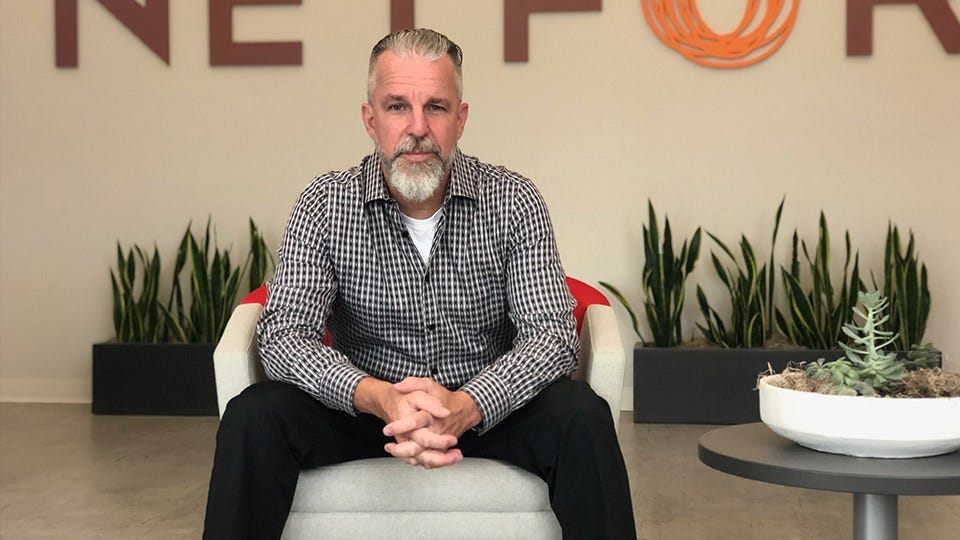Creating Extraordinary Customer Service by Asking Two Simple Questions

Subscriber Benefit
As a subscriber you can listen to articles at work, in the car, or while you work out. Subscribe NowDisappointed with a company’s response to an issue with their product or service, you click on their feedback link, which takes you to a 15-minute survey you just don’t have time to complete. They lose an opportunity to gain valuable insight, and now you’re even more frustrated.
I’m sure the scenario is familiar, because it’s how far too many companies evaluate customer experiences. How many times have you abandoned a survey because it was ridiculously long or was obviously developed to mine marketing information?
As a customized managed services provider handling support for many companies, Netfor’s success — and by extension, that of our clients — rests largely on the experiences we provide when a client’s customer has a problem. So it should come as no surprise we’re obsessive about evaluating our performance.
As a tech-savvy bunch, it would be easy for our team to develop some sort of complex, shiny assessment tool. Instead, we use email and ask just two remarkably simple questions. What we learn from the answers to those questions is central to our company’s success.
Every call, email, or chat we handle for our clients generates a ticket used to track every step of the process. Once an issue is resolved, we close the ticket and immediately send the email to the customer who contacted us. It asks them to rate their support experience on a 1-to-10 scale, with 1 representing complete dissatisfaction and 10 indicating complete delight. Then it invites them to share any specific feedback they have about their experience. Two simple questions that take just a minute or two to answer.
We use the numerical responses to generate Net Promoter Scores®, a metric for measuring customer experience that’s used by more than two-thirds of Fortune 1000 companies. Respondents who rate our work between 1 and 6 are referred to as Detractors, those who give us 9s and 10s are called Promoters, and anyone in between are Passives. Subtracting the percentage of customers who are detractors from the percentage who are promoters gives us a score between -100 and 100.
Using the Net Promoter Scores gives us an instantly updated, ongoing way to compare our performance with other companies both within and outside our industry. We share the scores with our clients through dashboards that break the scores down by the type of interaction.
We’re proud of the scores our team achieves, but we don’t do this to pat ourselves on the back. Our goal is to get even better. That’s where the second question comes in. We pay particular attention to the feedback from anyone who rates us below promoter level — the detractors because we know they’re dissatisfied for some reason, and the passives because they’re a short step from becoming detractors.
Studying the feedback against the details on the corresponding ticket helps us identify problem areas. Maybe the customer felt it took too long to get a response. Perhaps they thought our service desk agent treated them rudely. It could be they found our guidance confusing. We analyze the responses and share them with our clients.
Then we use what we’ve learned to drive internal initiatives so we can improve. It may be we need to address a particular situation through our training program. Or we have to improve the recommendations in our knowledge base. We look for ways to improve our response so the next person who contacts us with a similar issue is happier with how we handled it.
Finally, we close the loop by responding to the person who shared the details of their interaction. We confirm receiving their feedback, we thank them for taking the time to share it with us, and we tell them what we’re doing to fix the issues they raised.
It’s a simple process that consistently yields tremendous benefits for the clients we serve. After all, their reputations are in the hands of our service desk agents. Customers have no idea they’re speaking with a Netfor employee. Higher scores mean those customers come away from those interactions with better opinions of our clients.
We learn a lot from what our clients’ customers see as missteps. We also learn from our successes. If a particular service desk agent is earning plenty of 9s and 10s, we want to know what they’re doing well and find ways to duplicate their performance throughout our team. When a customer raves about the way we handled an issue, we make sure the agent knows. Sensible accountability does more than improve our services. It also strengthens internal morale.
Isn’t it amazing what you can accomplish with an email and two simple questions?
Jeff Medley is the CEO and founder of Netfor.
